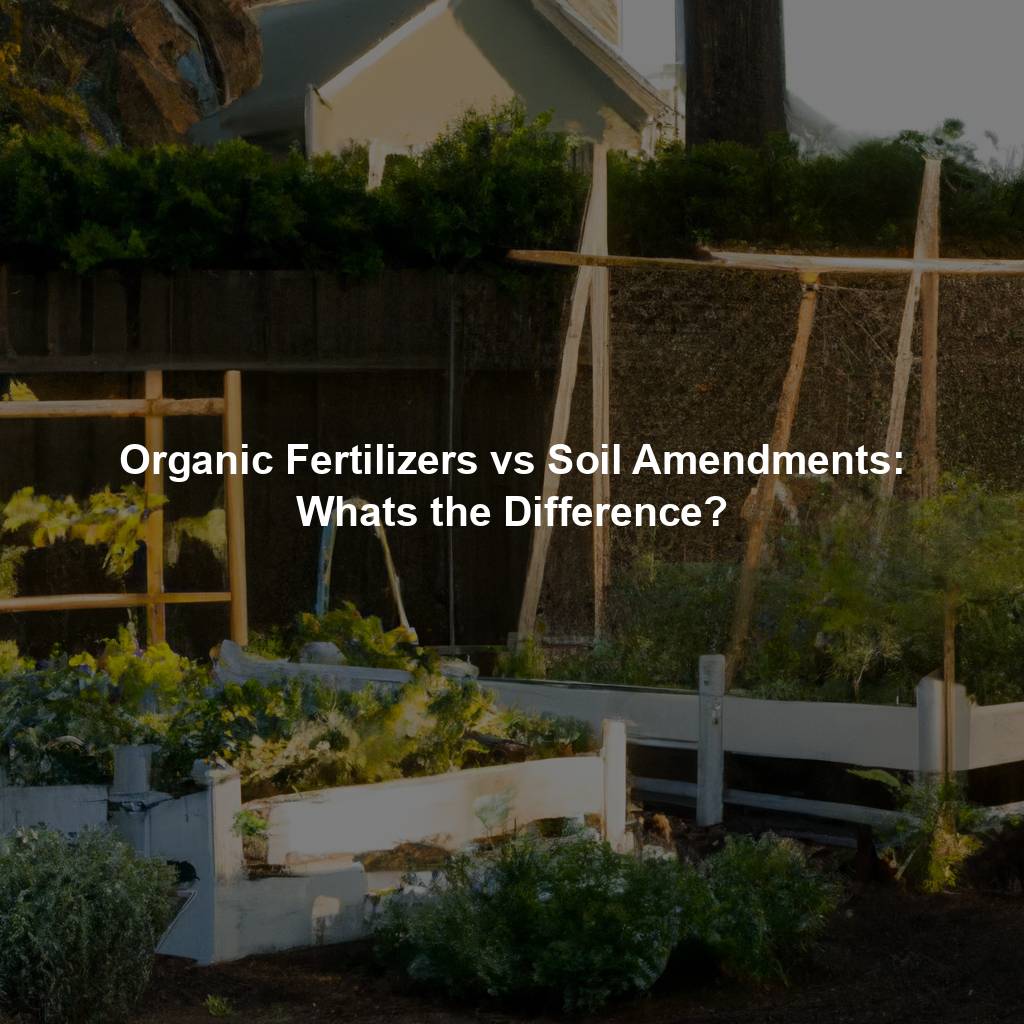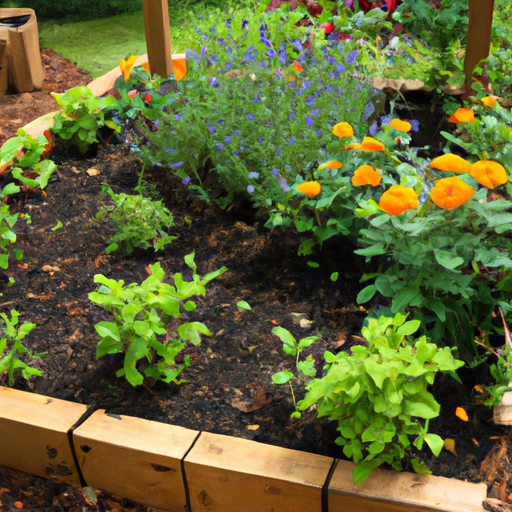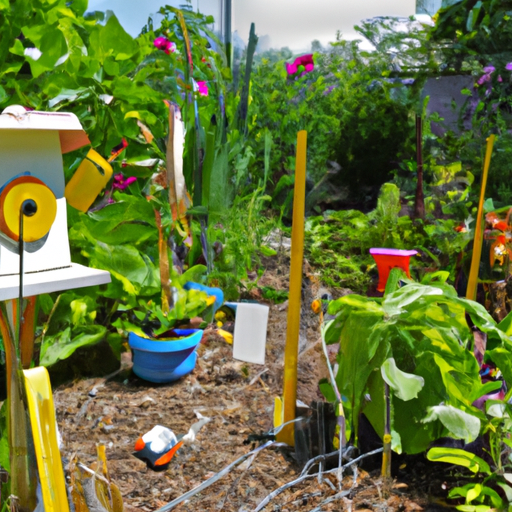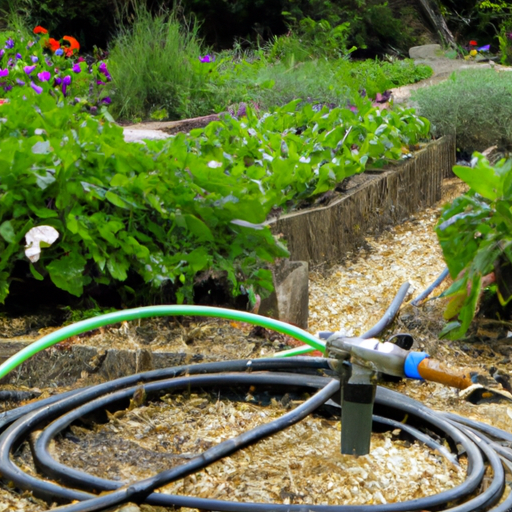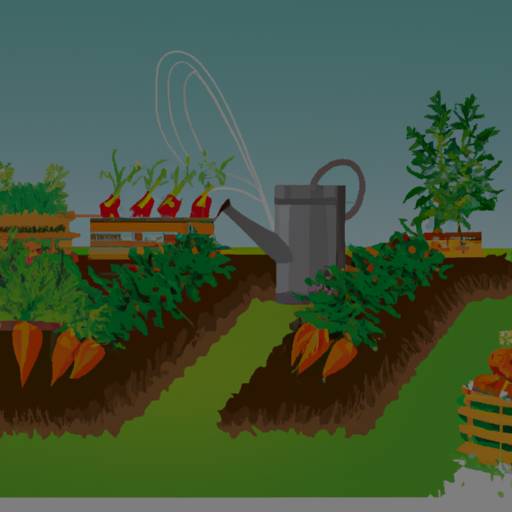@ OpenAI Status: The OpenAI servers appear 100% healthy. Out of the 38 calls to the OpenAI API server, 0 failed.
@ Settings used: Length=Short, Voice=Personal, LiteraryDevices, Lists, FAQ, Boost, Style=Master Gardener, AutomaticKeywords, Bestof2, Tables
@ Midjourney AI Image Prompt: /imagine prompt:Create an image that depicts the contrast between organic fertilizers and soil amendments. Use vivid colors and textures to visually differentiate between the two methods of soil enrichment. –v 5 –ar 3:2 (Note: Use –v 4 if you do not have a paid Midjourney account)
@ Meta Description: “Unlock the secrets to growing thriving plants! Learn the difference between organic fertilizers and soil amendments in this informative article.”
Auto keywords for “Understanding Organic Fertilizers”:
Benefits of organic farming, disadvantages of synthetic fertilizers
Auto keywords for “Examining Soil Amendments”:
“Composting Benefits, Nutrient Rich Mulch”
Auto keywords for “Benefits of Organic Fertilizers”:
benefits of organic fertilizers, nutrient content comparison
Auto keywords for “Advantages of Soil Amendments”:
“Application methods, Types of soil amendments”
Auto keywords for “Choosing the Right Option for Your Garden Needs“:
comparing costs, assessing environmental impact
Auto keywords for “Are organic fertilizers and soil amendments safe for pets and children?”:
Toxicity concerns, Application safety
Auto keywords for “Can organic fertilizers and soil amendments be used together?”:
Benefits of combining organic fertilizers and soil amendments, Types of organic fertilizers and soil amendments that complement each other
Auto keywords for “How often should organic fertilizers and soil amendments be applied to plants?”:
Frequency of application, ideal timing
Auto keywords for “Can organic fertilizers and soil amendments be used in hydroponic systems?”:
“Hydroponic application, Nutrient solution compatibility”
Auto keywords for “Are there any negative effects of using organic fertilizers and soil amendments on the environment?”:
Environmental impact, toxicity concerns
Organic Fertilizers Vs Soil Amendments: Whats The Difference
Are you confused about the difference between organic fertilizers and soil amendments? As a Master Gardener, I understand how important it is to properly nourish your plants.
Organic fertilizers are made from natural materials such as manure, bone meal, or blood meal. They provide immediate nutrients to plants that can be quickly absorbed through their roots.
Soil amendments, on the other hand, improve the structure and quality of the soil over time. These include things like compost, peat moss, or vermiculite.
In this article, we will explore the differences between these two types of plant nourishment so that you can make an informed decision for your gardening needs.
Understanding Organic Fertilizers
As a Master Gardener, I like to think of organic fertilizers as the nourishing food that fuels your plants’ growth and development.
Just like how we need healthy food to thrive, our plants also require nutrient-rich soil to flourish.
Organic farming has become increasingly popular in recent years because it offers numerous benefits over synthetic methods.
For one, organic fertilizers are made from naturally occurring materials such as composted animal waste or plant matter, which means they do not contain harmful chemicals that can harm both the environment and human health.
In contrast, synthetic fertilizers come with many disadvantages including water pollution and soil degradation due to their chemical content.
By using organic fertilizers, you’ll be taking a step towards sustainable agriculture while providing your plants with all the nutrients they need for optimal growth and yield.
Examining Soil Amendments
Now that we have a good understanding of organic fertilizers, let’s examine soil amendments.
Soil amendments are substances added to the soil to improve its physical and chemical properties. They can help increase soil fertility, boost plant growth, and enhance water retention.
Composting Benefits:
One popular type of soil amendment is compost. This nutrient-rich mulch is made from decomposed organic matter such as leaves, grass clippings, food scraps, and manure. When added to the soil, it helps increase microbial activity which in turn increases the availability of nutrients for plants.
Nutrient Rich Mulch:
Another example of a soil amendment is nutrient-rich mulch. Made from materials like shredded bark or wood chips, this type of mulch not only adds nutrients to the soil but also helps regulate moisture levels while suppressing weed growth.
Other types of soil amendments include lime, gypsum, and peat moss. By incorporating these substances into your garden bed or container garden mix, you can create an ideal growing environment for your plants without relying solely on synthetic fertilizers or harmful chemicals.
Remember that different plants may require different types of amendments depending on their specific needs so be sure to research beforehand!
With a little bit of knowledge and effort towards creating healthy soils through proper use of organic fertilizers and appropriate amendments will lead to healthier crops at harvest time!
Benefits Of Organic Fertilizers
As Master Gardeners, we understand the importance of utilizing organic fertilizers in our gardens. These natural alternatives offer a plethora of benefits that synthetic options simply cannot match.
For starters, organic fertilizers provide more balanced nutrition for your plants compared to chemical options. The nutrient content comparison is staggering; organic fertilizers contain trace minerals and beneficial microorganisms that are essential for plant growth but are missing from their artificial counterparts.
Additionally, using organic fertilizers promotes soil health by increasing microbial activity and improving soil structure, leading to healthier roots and ultimately stronger plants.
So next time you’re looking to give your garden an extra boost, consider the many benefits of choosing an organic fertilizer option over its synthetic counterpart – your plants (and Mother Nature) will thank you!
Advantages Of Soil Amendments
When it comes to soil amendments, there are plenty of advantages.
For starters, they can improve the structure and texture of your soil. This allows for better water retention and drainage, which is essential for healthy plant growth.
Additionally, many types of soil amendments contain nutrients that can benefit your plants in a way that organic fertilizers simply cannot.
Application methods vary depending on the type of amendment you choose, but most can be easily mixed into the top few inches of soil or added as a mulch layer.
Some common types of soil amendments include compost (which adds organic matter), vermiculite (which improves moisture retention), and perlite (which aids in drainage).
Overall, using soil amendments is an effective way to give your garden a boost without relying solely on synthetic fertilizers.
Choosing The Right Option For Your Garden Needs
As we learned in the previous section, soil amendments can provide numerous benefits to your garden. But when it comes to choosing between organic fertilizers and soil amendments, it’s important to assess which option is right for you based on various factors.
Comparing costs is a crucial aspect of this decision-making process. While some organic fertilizers may be more expensive upfront, they could potentially save you money in the long run by improving soil health and reducing the need for additional treatments. On the other hand, certain soil amendments like compost or vermiculite may require less initial investment but will need to be reapplied regularly.
It’s also essential to consider the environmental impact of each choice. Organic fertilizers are often made from renewable resources and have low toxicity levels compared to synthetic options, making them a more sustainable choice overall. However, some soil amendments may come with their own set of sustainability concerns such as transportation emissions or excessive water usage during production.
Ultimately, understanding these differences and weighing your priorities will help guide you towards selecting the best option for your unique gardening needs.
Frequently Asked Questions
Are Organic Fertilizers And Soil Amendments Safe For Pets And Children?
When it comes to gardening, safety should always be a top priority. This is especially true when dealing with products that may have toxicity concerns such as fertilizers and soil amendments.
As a Master Gardener, I can assure you that organic options are generally safer for pets and children than synthetic alternatives. However, it’s important to remember that just because something is labeled ‘organic’ doesn’t guarantee its application safety.
Always follow instructions carefully and keep these products out of reach from curious little hands or paws.
Can Organic Fertilizers And Soil Amendments Be Used Together?
Can organic fertilizers and soil amendments be used together?
Absolutely! Combining these two types of products can provide numerous benefits for your garden.
By using a variety of different types of organic fertilizers and soil amendments that complement each other, you can create an optimal growing environment for your plants.
For example, adding compost to your soil can help improve its structure and water-holding capacity, while also providing nutrients.
Meanwhile, using bone meal or blood meal as a fertilizer can add essential nitrogen to the soil.
Ultimately, combining these products is all about finding the right balance that works best for your specific garden needs.
How Often Should Organic Fertilizers And Soil Amendments Be Applied To Plants?
As a Master Gardener, it is important to understand the frequency of application and ideal timing when using organic fertilizers and soil amendments.
When considering how often to apply these products, it is important to take into account the specific needs of each plant as well as the type of fertilizer or amendment being used.
Generally speaking, most plants benefit from regular applications throughout the growing season, with a focus on providing nutrients during periods of rapid growth.
As for timing, it’s best to apply organic fertilizers and soil amendments early in the planting process so that they have time to work their way into the soil before your plants start actively growing.
However, depending on the product you’re using, there may be other recommended times for application – always read labels carefully!
Can Organic Fertilizers And Soil Amendments Be Used In Hydroponic Systems?
Hydroponic application of nutrients is becoming increasingly popular among gardeners who want to maximize plant growth and minimize soil-based issues.
One question that arises often is whether organic fertilizers and soil amendments can be used in hydroponic systems.
The answer is yes, but it’s important to consider the nutrient solution compatibility.
Organic fertilizers release their nutrients slowly, so they may not be ideal for short-term crops grown using hydroponics.
Soil amendments, on the other hand, are typically designed for use in traditional gardening methods and may not work as well in a hydroponic system.
It’s always best to do your research and choose products specifically formulated for hydroponic applications if you want to get the most out of your plants.
Are There Any Negative Effects Of Using Organic Fertilizers And Soil Amendments On The Environment?
When considering the use of organic fertilizers and soil amendments in gardening, it’s important to think about their potential environmental impact.
While many gardeners appreciate these natural methods for promoting growth and health in plants, there are some toxicity concerns that should be taken into account.
Chemicals found in certain types of organic fertilizers can leach into groundwater or harm beneficial insects and wildlife if used improperly. Additionally, some soil amendments may contain heavy metals or other contaminants that could negatively affect local ecosystems over time.
To minimize any negative effects on the environment, it’s always a good idea to research products thoroughly before using them and follow all recommended application guidelines closely.
Conclusion
In conclusion, organic fertilizers and soil amendments can be safe and effective ways to nourish your plants without the use of harmful chemicals. As a Master Gardener, I always recommend using these natural options over synthetic alternatives for a healthier garden.
One anecdote that comes to mind is my experience with compost tea as a soil amendment. It’s like giving your plants a gourmet meal! Just like we feel better when we eat healthy food instead of junk food, our plants thrive on nutrient-rich amendments like compost tea.
Overall, by choosing organic fertilizers and soil amendments, you are not only benefiting your own garden but also contributing to a healthier environment in the long run.
So let’s keep growing green together!
